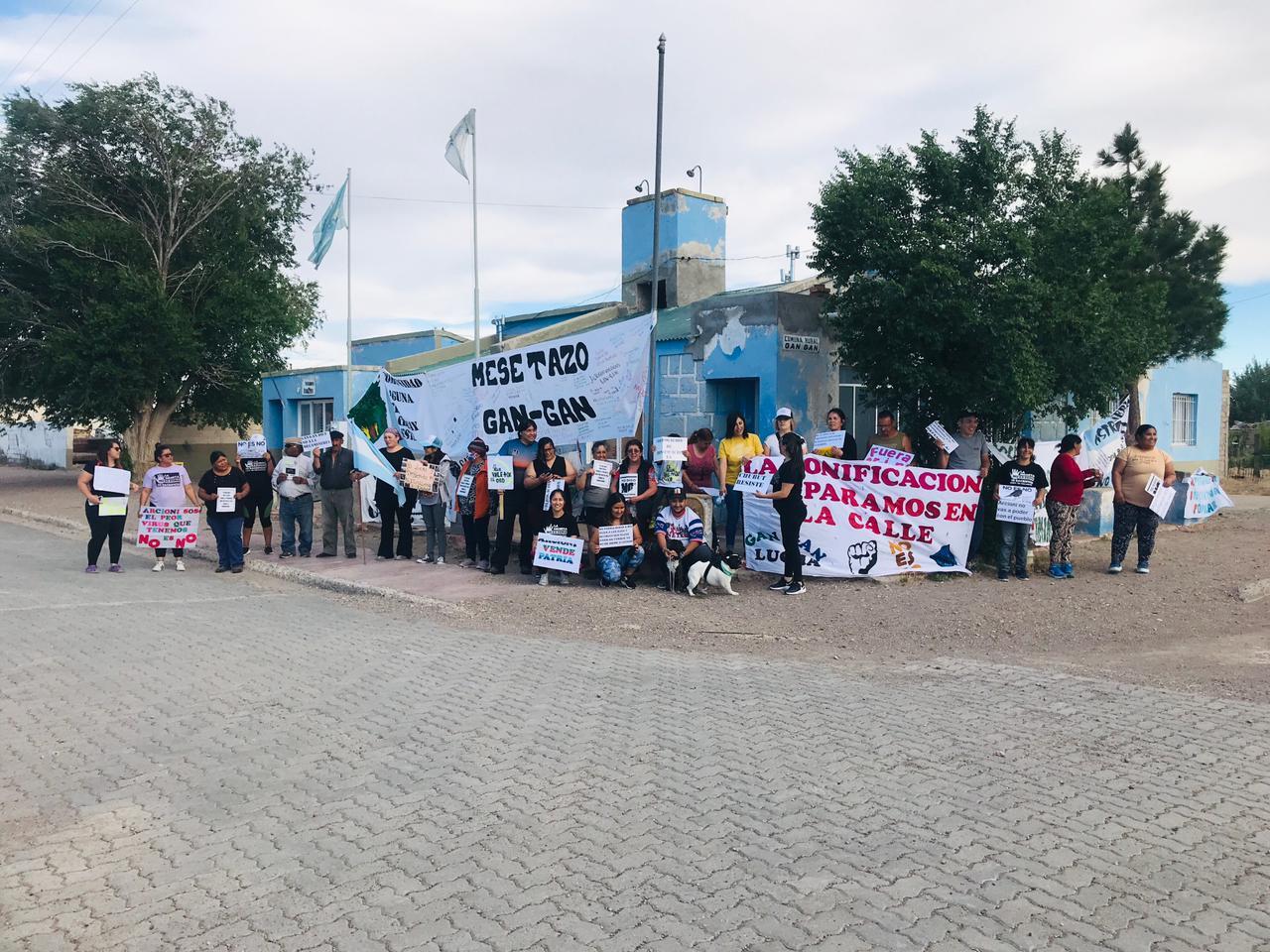A good news update on December 22, 2021: After a massive public outcry, the province of Chubut has repealed last week's 14-11 vote to allow for open-pit mining in certain areas of the province. We celebrate this impressive display of people power, while lifting up the many voices of those who have already said a clear 'NO' to mining in the province. Stay tuned for further updates.
Last week, the provincial legislature in Chubut, Argentina voted to allow open-pit mining to take place in certain areas of the province, overturning important environmental protections that have been in place for nearly 20 years banning the practice. In response, communities immediately took to the streets in peaceful protest, facing significant violence and police repression.
While clearly contrary to the people’s will in Chubut, this vote serves the interests of Canadian mining company Pan American Silver, which acquired the Navidad project when it bought Aquiline Resources in 2010. The company knew that environmental legislation would need to be overturned to convert the sizeable silver deposit into an operational mine.
In a 2020 interview, company founder Ross Beaty conveniently dismissed the presence of Mapuche Tehuelche Indigenous people and downstream affected populations when he remarked: “Pan American bought a company in Argentina that had the biggest silver resource in the world. It was a fabulous deposit in the middle of a perfectly good place to mine, in the middle of a kind of windswept, no-man’s land in southern Argentina. And it had every technical reason in the world to be a really great place to build a mine. There was no biodiversity loss, no environmental issues at all, no people, no nothing…The deposit is perfect for us and at some point, they’re going to change the law and allow open-pit mining.”
It appeared that Beaty’s words, stated in true colonialist style, staking claim to the meseta of Chubut like it were terra nullius, may have been coming true. The day following the vote in the Chubut legislature last week, Pan American Silver issued a statement suggesting that the company knows what is good for the people, that its project “can benefit the people of Chubut,” when the people of Chubut have been carrying out massive protests saying otherwise. In a rather hollow statement, following Beaty’s earlier willingness to deny the very existence of people in the area, the company said it will continue to engage in “open, transparent dialogue with applicable communities” in order to obtain permits.
Over 30 international organizations signed a statement in solidarity with the communities and organizations of Chubut who are affected by the law to allow for mining. Here we highlight some of the voices from the communities who have resoundingly said ‘NO’ to mining for decades, asserting their self-determination.
Words from Iván Paillalaf, from the Mapuche-Tehuelche community of Laguna Fría-Chacay Oeste
For centuries, ever since the Spaniards and later the Argentine State wanted to conquer our territories, the Mapuche Tehuelche people have been active in the defense of the Ngen Mapu (fuerzas de la tierra), strengthened in the power of the Newen (fuerzas) who inhabit these lands to protect the water and this territory.
That is why we will always vocally oppose all large-scale mining, as well as any kind of polluting activity. Fittingly, our position at this moment is to remain firm in the struggle to defend all that we can – the territory, the water – by any possible means and do everything we can to stop this assault.
What is happening right now in the legislature is a violation of all the legal and constitutional rights we hold as Indigenous peoples. [They are] approving a law that legalizes the contaminating activities of mega mining exploitation in the territory of the Mapuche-Tehuelche people, which today are known as the departments of Gastre and Telsen.
These lands were stolen by the Argentine State through a genocidal military campaign at the end of the 19th century. That’s why the only thing we feel right now is indignation and anger. At the same time, this confirms something that any informed person in this province and territory already knew – that at this moment, we are being governed by the mining companies, that the state continues to perpetuate genocide, and that only organized struggle and taking to the streets will stop this assault.
We will continue to demand that our rights be respected in every possible way as we have done for centuries. We hope to count on the support of all conscientious people of Abya Yala and the world, because this is not an isolated event. All over the world, extractivist capitalism is trying to impose itself on what’s most sacred: water and life. We cannot allow this to happen.
Words from Cristina Aguero from No a la Mina Esquel
With the approval of this bill, our most basic rights have been violated. Convention 169 of the International Labour Organization has not been respected, nor has the principle of non-regression of environmental protections outlined in the Escazú Agreement. This decision disregards the scientific community, the medical and paediatric community, as well as unions and hundreds of organizations and assemblies who have spoken out against zoning to allow for mining in the province.
There has been no investigation into the complaints filed to date against the proposed bill since it was first presented. In December, reforms took place to limit access to justice, restricting access to preventive injunctions, limiting the granting of precautionary measures and paving the way for this decision. This was done considering that this case may bypass lower courts and be taken directly to the Superior Court of Justice of Chubut, which has been stacked with people who answer to the governor of Chubut, Mariano Arcioni.
